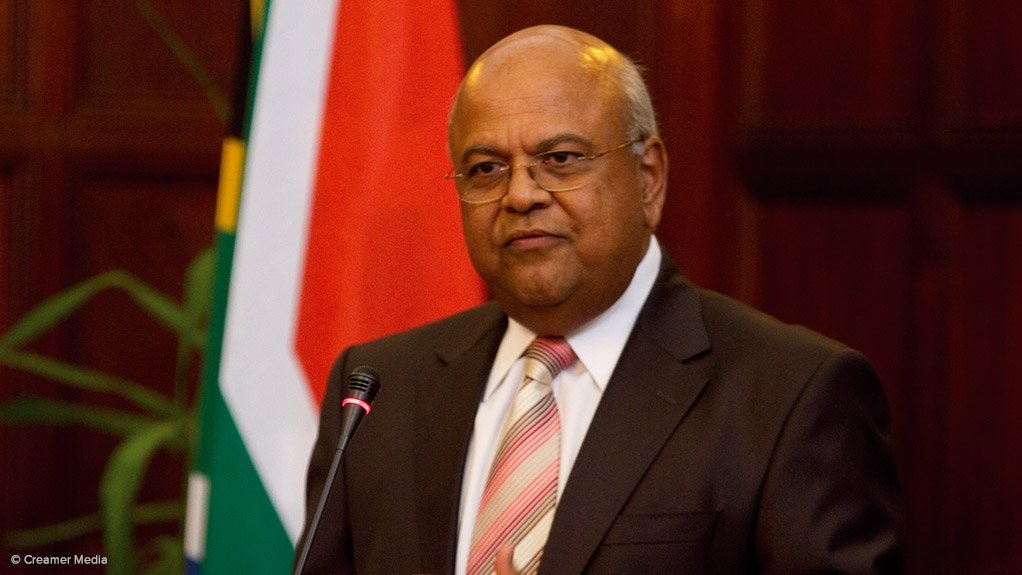Tax crimes, money laundering and illicit financial flows are part of a complex set of phenomena that are undermining good governance and ethical political, governmental and civil society programmes that are intended to encourage inclusive growth, reduce inequality and improve the living standard of the poor and lower-income classes in Africa and elsewhere in the world, Finance Minister Pravin Gordhan said on Tuesday.
He was addressing delegates at the High-Level Conference on Illicit Flows: Inter-Agency Cooperation and Good Tax Governance in Africa at the University of Pretoria, in Tshwane.
He stated that these issues were “core concerns” for African countries, as illicit flows from and between countries posed a significant threat to the developmental agenda of the continent.
Gordhan highlighted that good tax governance and strong cooperation between law enforcement agencies and tax authorities were essential elements in effectively countering corruption, bribery and illicit flows.
“This requires each society to nurture and sustain strong, capable and independent institutions, which are led and operated by public officials who are ethical, public service-orientated and are allowed to act without fear or favour against those that are committing these crimes,” he remarked.
The Minister noted that the Tax and Good Governance Project 2015-2018 sought to tackle these crimes globally and required an “unimpeachable effort” to build resilient institutions and officials whose integrity was beyond question.
“This is a task that I must admit is easy to articulate but difficult to implement,” he conceded.
Nonetheless, Gordhan stressed that all global stakeholders in the fight against these crimes could not relent in their efforts and should ensure that the right things were done, particularly where there were “evil and destructive forces” in the public and/or private sector that were seeking to “sabotage” genuine people-orientated democracies and just and fair development worldwide.
Moreover, he highlighted that the International Monetary Fund (IMF) noted in March that money laundering, the financing of terrorism and other related crimes could significantly undermine the integrity and stability of financial institutions and systems, which could discourage foreign investment and distort international capital flows.
The IMF also emphasised that such crimes were a threat to a country’s financial stability and macroeconomic performance with significant spillover effects in other countries owing to the world becoming increasingly interconnected at all levels.
“The recent leakage of the so-called Panama Papers demonstrated how wealthy individuals are able to conceal their personal wealth,” Gordhan commented.
He added that illicit flows were by their very nature difficult to quantify with any real degree of certainty and pointed out that, despite the commitment to action since the early 2000s, illicit flows had increased substantially worldwide.
“Africa alone is estimated to lose about R50-billion a year owing to tax evasion and the mispricing of trade services by multinational companies,” Gordhan revealed.
Nonetheless, he stressed that an improvement in tax and customs administration globally would greatly assist in tackling the scourge of illicit flows. The Minister said there also needed to be a focus on increasing the capacity and integrity of tax and customs agencies, as well as on strengthening tax legislation to better deal with the abuse of tax systems.
Gordhan stated that these illegal practices resulted in a substantial erosion of countries’ tax bases, which had a significant impact on the fiscal capabilities of governments and their abilities to improve their economies and, therefore, their efforts to raise the living standards of their citizens.
Additionally, he noted that the process of building capacity to counter transfer mispricing could be a long and sometimes difficult journey, as the South African experience demonstrated. Gordhan explained that South Africa’s transfer pricing legislation was first introduced in 1995; however, government was still in the process of building its capacity over 20 years later.
“The journey has had its successes, with several adjustments to transfer prices in excess of R1-billion each. These are successes that we aim to build on,” he enthused.
The Minister moreover highlighted that several of the action items of the Organisation for Economic Cooperation and Development’s Base Erosion and Profit Shifting (BEPS) Action Plan had led to measures to ensure that profits were taxed where value was created.
He noted that a 2015 BEPS report estimated that the magnitude of revenue lost from BEPS was conservatively estimated at $100-billion to $240-billion a year, or 4% to 10% of global corporate income tax (CIT) revenues.
The report highlighted that, given developing countries’ greater reliance on CIT revenues as a percentage of tax revenue, the impact of BEPS on these countries was “particularly significant”.
“It is, therefore, in the interest of Africa to quickly develop our capacity to implement the concept of beneficial ownership. This is fundamental to detecting and preventing illicit flows among other malpractices,” Gordhan stated.
EMAIL THIS ARTICLE SAVE THIS ARTICLE FEEDBACK
To subscribe email subscriptions@creamermedia.co.za or click here
To advertise email advertising@creamermedia.co.za or click here











